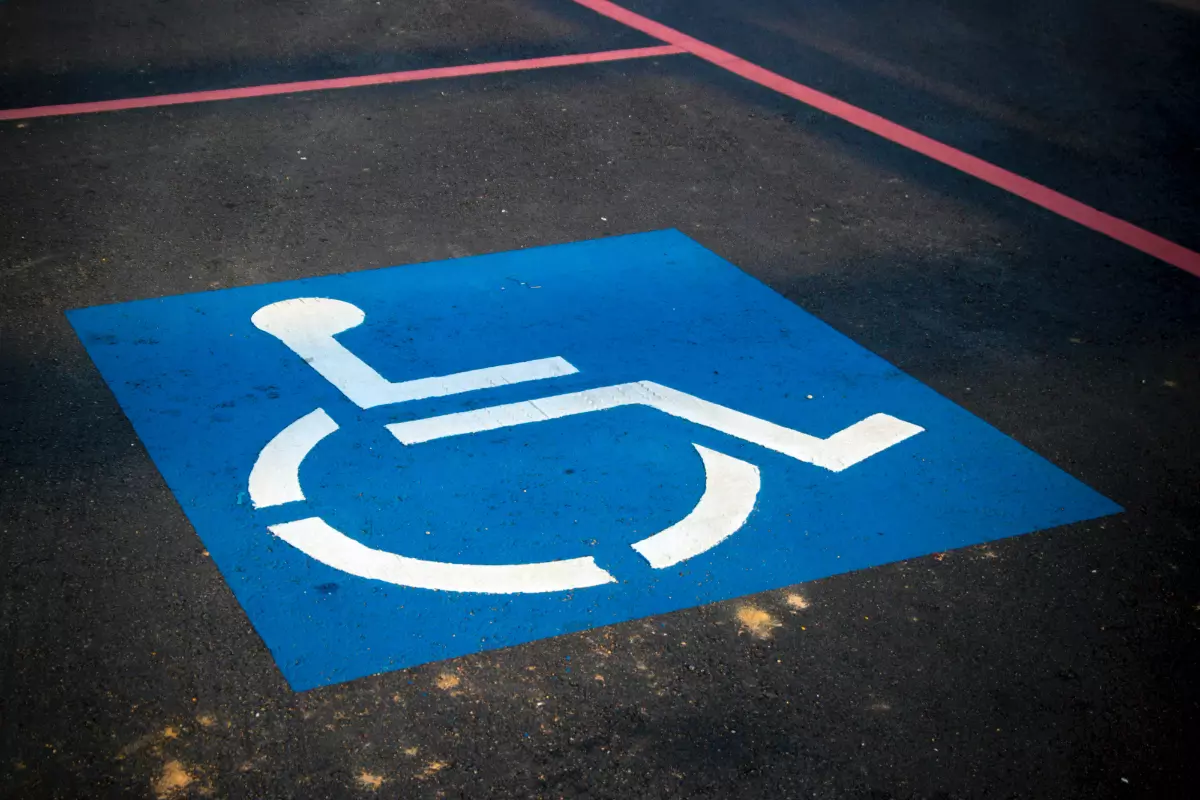Find out how much it costs to install hand controls in a car in the UK. Explore the range of adaptive devices available, such as push/pull levers and electronic systems, and learn about the factors that influence pricing.
Whether you're looking for basic modifications or advanced systems, discover the typical costs for converting your vehicle to suit your mobility needs.
Mechanical Hand Controls
Mechanical hand controls are among the most common adaptations for disabled drivers. These controls utilise mechanical linkages that connect a lever to the brake and accelerator pedals, allowing drivers who have difficulty using their feet to operate the vehicle's pedals effectively. The cost of mechanical hand controls can vary. Basic push-pull hand controls start at around £500.
These enable the driver to control both the accelerator and brake by simply pushing and pulling a lever. More advanced mechanical hand controls, which may offer additional functionalities or increased ease of use, can cost upwards of £1,000.
The type and complexity of the system can significantly influence the overall price. It's worth noting that these prices often include installation fees, but it’s advisable to confirm this with your provider to avoid unexpected costs. These adaptations are generally fitted to automatic vehicles.
This is because it is simpler to operate a car with hand controls when there is no need to manage a clutch, making driving more accessible for those who have limited use of their legs. It's crucial to contact a professional installer to ensure the controls are properly fitted.
A professional fitting will also include instructions on how to use the controls safely, ensuring the best possible driving experience for the user. In summary, mechanical hand controls provide an essential solution for many disabled drivers, offering greater independence and mobility through expertly designed and installed adaptations. Properly fitted mechanical hand controls ensure safe and effective vehicle operation for those requiring these modifications.
High-Tech Controls
High-tech controls represent a more advanced solution for drivers seeking independence. These can include electronic systems that integrate with the car's existing functions. Unlike mechanical hand controls, high-tech versions often use digital interfaces and are customisable based on the driver's needs. Prices for high-tech hand controls start at approximately £1,500.
These controls can offer a wide range of features, such as touch screens, joystick controls, or even voice recognition systems. This flexibility allows disabled drivers greater ease in operating their vehicles. The cost is significantly higher due to the advanced technology and the bespoke nature of these adaptations. It’s not uncommon for prices to exceed £3,000, especially if extensive modifications are required.
Additionally, high-tech controls require regular maintenance to ensure they operate correctly. The main advantage of high-tech controls is their adaptability. Unlike mechanical hand controls, these systems can be fine-tuned to suit the specific needs of the disabled driver.
This is particularly useful for those with variable or progressive conditions. High-tech controls often include features like touch screens, which allow for easy access to various functions of the vehicle with just a few taps. Joystick controls provide precision and ease of use, especially for those who may have limited hand strength.
Voice recognition systems add another layer of convenience, enabling drivers to control various functions without taking their hands off the wheel. However, these advanced systems do come with their own set of challenges.
Regular maintenance is crucial to ensure the controls function correctly, and any software updates need to be installed promptly to keep the system running smoothly. It’s advisable to consult with an expert for an assessment to identify the most suitable high-tech hand control system and to get a precise cost estimate.
For those interested in exploring high-tech controls, it’s important to weigh the benefits against the costs and maintenance requirements. Consulting with specialists who understand the specific needs of disabled drivers can provide valuable insights and help in making an informed decision.

Pedal Modifications
Pedal modifications are another important adaptation, especially for drivers who find it difficult to use their feet. These modifications can involve adjusting the height or position of the pedals themselves or even adding a left-foot accelerator.
Basic pedal modifications typically start around £200. These might involve extending the pedals or repositioning them closer to the driver. These basic adjustments can make a world of difference for someone who has limited leg function but still wants to operate the pedals with their feet.
For those who can only use their left foot, a left-foot accelerator is an effective solution. This modification might cost approximately £500. It allows the driver to control the accelerator pedal with their left foot while their right foot operates the brake.
It’s important to note that pedal modifications are generally used in combination with other adaptations. For instance, some drivers might require both a left-foot accelerator and a modified pedal height to drive comfortably. As always, professional installation is recommended to ensure the modifications are safe and effective.
Remote Control Devices
Remote control devices offer another level of convenience and functionality for disabled drivers. These controls can operate various vehicle functions like the horn, lights, or indicators, without needing to reach the standard buttons and switches.
Basic remote control devices start at around £250. These usually include handheld devices that the driver can operate with one hand while controlling the steering with the other. More advanced systems integrating multiple functions might cost upwards of £500 but offer comprehensive control without having to take your hand off the steering wheel.
Remote control devices are particularly beneficial for drivers with limited upper body mobility. They enable the driver to handle multiple vehicle functions easily, making driving safer and less strenuous.
Installation for these devices usually involves fitting the remote interface near the steering wheel or integrating it into the existing dashboard controls. Most systems are designed to be user-friendly and intuitive, making it easier for the disabled driver to transition from conventional car controls.
For those considering these adaptations, it’s essential to consult with an expert. They can provide detailed information on what specific remote control devices will best meet your needs and how much it will cost to install them in your vehicle.

Steering Aids
Steering aids are crucial for many disabled drivers, providing easier and safer control of the steering wheel. There are different types of steering aids, including steering balls, spinner knobs, and other specialised attachments. The starting price for basic steering aids, such as a steering ball, is around £100.
These aids are simple to install and allow the driver to steer the vehicle using just one hand. More advanced aids, like spinner knobs, might cost upwards of £200 and offer additional grip features for those with limited hand strength.
For drivers who need even more assistance, more sophisticated steering aid systems are available. These can include power-assisted steering enhancements or even electronic steering systems, which can range from £500 to £1,500 depending on the complexity and technology involved.
Steering aids are particularly useful for individuals who cannot use one of their hands or arms effectively. They allow the disabled driver to maintain control of the vehicle without the need for constant adjustments. Installation is usually straightforward but should always be performed by a professional to ensure it's fitted correctly and securely.
To find the best steering aid for your needs, it's advisable to test different options and consult with a specialist. This will help you determine which type of aid provides the most comfort and control, making your driving experience safer and more enjoyable.
Additionally, newer technological advancements in this field are making steering aids even more user-friendly. Options such as voice-controlled systems and adaptive steering mechanisms are entering the market. While these may come at a higher price point, they offer unparalleled ease of use and safety features, further enhancing the driving experience.
Ultimately, having the right steering aid can significantly improve the quality of driving for disabled individuals, contributing to their independence and confidence on the road. It is essential to research thoroughly and consider all available options to ensure that the chosen solution meets your specific needs. Always prioritise safety by opting for high-quality aids installed by professionals.
Under the Mobility Scheme, these adaptations can be fitted for no extra cost.
MotorHome Towbars provide cars, scooters, wheelchairs and more, so if you're interested, please reach out to us, and we can adapt your motor for your disability.
Are you looking for disabled vehicle hand controls in Lincoln And Lincolnshire? We have a huge range of adaptations available and would love to discuss this with you.

